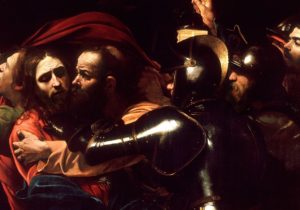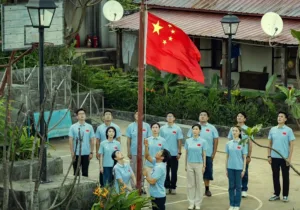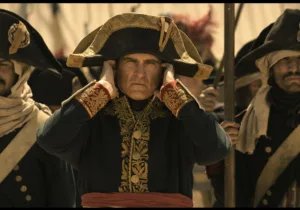Could Robert Mugabe’s calamitous 37-year reign of repression and exacerbated poverty over Zimbabwe, now mercifully ended, have been averted? I’ve wondered about this question for 40 years since a boy when I began to follow events in Zimbabwe closely and was distressed by America’s role in enthroning Mugabe.
Mugabe at age 94 stepped aside this week after his military and political party finally turned against him. He ought to have been chased from power long ago. During his reign of nearly four decades per capita income and human longevity have remained flat in Zimbabwe while in subsaharan Africa as a whole per capita income increased nearly three fold and longevity by 20%. Freedom House rankings of Zimbabwe show human liberty under Mugabe was no better than under the repressive white minority regime he replaced as supposed liberator.
There was a now forgotten brief interim leader between Mugabe and the white regime whom I admired as a boy: United Methodist Bishop Abel Muzorewa. The American educated cleric, who as a young man with his children had contended against segregation in Missouri and Tennessee, fought white minority rule in what was then Rhodesia, for which he was persecuted. “If religion just means to go to church and pray, then it is a scandal,” Muzorewa explained. “The gospel is concerned about where a man sleeps, what a man earns, how he is treated by the government.”
Under international pressure that included sanctions and a 7-year guerrilla war waged by Chinese-supported Mugabe and Soviet-supported Joshua Nkomo, the white minority regime of Ian Smith negotiated with Muzorewa and other non-violent black opponents for democratic elections in 1979. Despite violence and threats from Mugabe’s Patriotic Front, Muzorewa overwhelmingly won and became the first black leader of what became Zimbabwe Rhodesia.
Amid widespread acknowledgment the elections had been free, the Carter Administration still adamantly opposed any recognition of or reduction in sanctions against Muzorewa’s new black majority government. Carter’s United Nations Ambassador, Andrew Young, an ordained United Church of Christ clergy and MLK civil rights associate, took the lead in opposing Muzorewa as a supposed virtual puppet of the old white regime.
Young has recalled that during the 1976 presidential campaign Carter had asked him for briefing materials about southern Africa from the National Council of Churches, which had long outspokenly opposed colonial and white minority regimes. The World Council of Churches (WCC), with USA church support, funded Mugabe’s guerrilla rebellion, as part of its controversial Program to Combat Racism. The Patriotic Front’s killing Catholic and Pentecostal missionaries in Zimbabwe, plus downing a civilian airliner some of whose surviving passengers were murdered on the ground, prompted some unsuccessful church opposition within the WCC.
That Muzorewa was a bishop of a WCC member denomination did not diminish the ecumenical group’s hostility against him in favor of Mugabe, which was joined by even the United Methodist Women’s Division, among others. Prime Minister Muzorewa travelled to America but President Carter refused to meet him. Without Western or international support, Muzorewa was forced to negotiate with Mugabe and his titular ally Nkomo at the Lancaster House talks the British government hosted in London. New elections were agreed to, which Mugabe, as a member of the majority Mashona tribe, was virtually guaranteed to win against the now politically discredited Muzorewa.
“Any talk of democracy, freedom, and independence will be turned into an impossible dream,” Muzorewa presciently had warned of a Mugabe victory. “This country will find itself wallowing in the dust of poverty, misery, and starvation.”
Of course Mugabe overwhelmingly did win the 1980 election, which was rife with intimidation by his supporters. One fanciful story even threatened voters, implausibly, that Soviet satellites could read their ballots. Mugabe was a nearly lifelong Marxist, despite his Catholic upbringing, so his authoritarianism and socialism were unsurprising. He waged war against his former guerrilla war ally Nkomo, killing thousands of Nkomo’s Ndebele tribe with North Korean trained troops. He also imprisoned Muzorewa.
Mugabe was a political and economic disaster inflicting otherwise avoidable suffering on what should otherwise have been a prosperous nation. Could he have been kept from power if America had recognized Muzorewa? Margaret Thatcher’s government had negotiated the Lancaster House accord under implicit pressure. Before signing the agreement Thatcher told an aide she would refuse to shake the hands of terrorists, i.e. Mugabe, though in fact she would.
Possibly American support could have bolstered Muzorewa as a democratic ruler and helped eventually to end international sanctions. Or possibly Mugabe’s guerrilla rebellion would have persisted for years longer, killing many more thousands, and embroiling Zimbabwe in prolonged civil war, as afflicted neighboring Mozambique and Angola. Maybe Zimbabwe was destined for tragedy either way, though surely Divine Providence desired a better outcome.
As a boy during his brief rule I sent a photograph I had purchased from the Associated Press to Prime Minister Muzorewa with a letter asking for his signature. The clerk at the post office was impressed that someone my age was corresponding with someone in Zimbabwe Rhodesia, the prime minister no less. Alas, the photo was never returned. Years later I attended a United Methodist Council of Bishops meeting and briefly met retired Bishop Muzorewa in the rest room. He was very short and very quiet. I introduced myself and smilingly told him I had sought his autograph when a young admirer. He responded apologetically that others handled his correspondence. I wish our brief conversation had been more substantive. He died in 2010 just short of age 85.
Muzorewa had hoped he could be a Nelson Mandela for Zimbabwe but was refused the opportunity. Mugabe had the opportunity but refused the role.
Despite Zimbabwe’s sufferings, it retains a vibrant Christianity, and many of its churches and their leaders have been patient and courageous during the Mugabe years. We must pray they lead in constructing a new democratic, lawful and prosperous nation no longer subservient to an autocrat’s whims.






